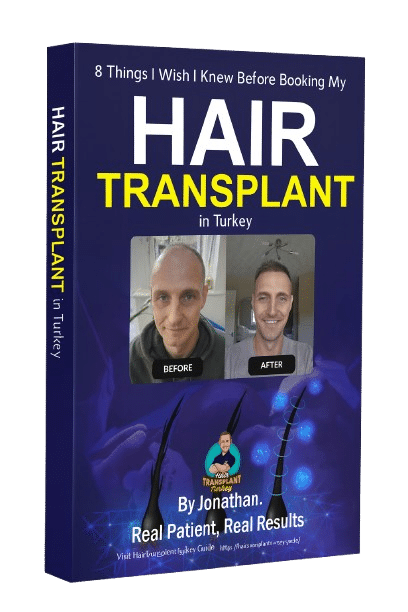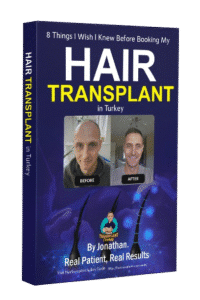If you’ve searched for hair transplant Turkey reviews or Clinicana Turkey reviews, you’ll know there’s no shortage of opinions. But as someone who went through the full journey myself, I’ve tried to peel back beyond the hype. In this post, I’ll place Clinicana within the wider context of Istanbul’s hair transplant sector, share data from medical authorities, and tell you the things I wish I’d known before I flew out to get my transplant.
1. The Bigger Picture: Medical Tourism & Turkey’s Hair Transplant Boom
1.1 Medical Tourism: Global Trends & Governance
Medical tourism is no niche — it’s a multibillion-dollar phenomenon. The U.S. Centers for Disease Control (CDC) notes that “medical tourists often base their choices on recommendations, cost differences, and perceived quality,” and emphasizes the importance of risk awareness and continuity of care when traveling for surgery.
The American Medical Association (AMA) has also issued ethical guidance for physicians involved with patients who travel abroad — stressing informed consent, medical record transparency, and follow-up care obligations.
These voices reflect an important principle: if you’re going abroad for treatment, you shouldn’t have to sacrifice transparency, safety or accountability.
Within Europe, Directive 2011/24/EU codifies certain patient rights for cross-border care (e.g. reimbursement conditions, information access) — though Turkey lies outside that bloc, the framework still helps us understand how medical travel is regulated in advanced health systems.
1.2 Turkey’s Scale, Growth & Market Dynamics
In many conversations about Turkey’s hair transplant sector, figures ranging from 700,000 to 1 million patients per year are quoted — and while precise count is hard to pin down, the broader trends are compelling:
In 2022, Turkey’s Health Tourism Association reported around 1 million foreign patients came specifically for hair transplantation, spending roughly US$2 billion in the process. (Source: Anadolu Ajansı )
Vera Clinic’s recent data suggests that Turkey performed ~1.5 million hair procedures in 2024 (versus ~1.05 million in earlier years), signalling continued growth.
The global hair restoration market is likewise expanding: in 2024, ~4.3 million hair transplant procedures were estimated globally, up ~21.6 % since earlier years.
Turkey’s medical tourism market overall (of which hair transplants are a major component) was valued at ~$1.89 billion in 2023, according to hims.
According to reporting by the South China Morning Post, in 2023 Turkey earned ~US$2.3 billion from health tourism.
Media coverage (e.g. Axios) notes that over 1.5 million “medical tourists” visited Turkey in recent years, many specifically for hair procedures.
These figures reinforce that Turkey isn’t just a popular option — it is a powerhouse in the hair transplant domain.
1.3 Why This Volume Matters
High volume isn’t automatically a sign of quality — but in this sector, it enables:
Economies of scale (lower per-patient fixed costs for infrastructure, staffing)
Specialization & refinement (clinics see many similar cases, so their processes—pre-op, graft extraction, post-op care—become optimized)
Competitive pressure (clinics must compete not just on price, but on reputation, standards, packages, transparency)
Still, volume also means risk: some clinics will cut corners or use aggressive marketing. That’s why due diligence is critical.
2. Why Istanbul, and Why Clinicana
2.1 Istanbul’s Strategic Advantage
Istanbul offers a rare combination of connectivity, infrastructure, and density of clinics:
Firstly, the new Istanbul Airport serves as an international hub. Many patients fly in from Europe, the Middle East, Africa, or Asia, often with one-transfer routes. I almost got lost several times in this airport – it’s enormous!
Secondly, Clinicana is located in central Istanbul, and the transfer from Istanbul Airport to the clinic/hotel area takes about 40 minutes by road (traffic allowing). In my own trip, that short private transfer meant I landed, felt comfortable quickly, and wasn’t exhausted on the first evening.
Lastly, Istanbul’s concentration of health infrastructure, hospitals, labs and supply chains (medical devices, sterile consumables, diagnostics) allows clinics to tap into full hospital standards easily.
What many patients don’t realize (certainly I underestimated this before I went there): the density of clinics means competition is fierce — and that forces clinics to differentiate by service, reliability, international patient infrastructure, and reviews.
2.2 Clinicana’s Value Proposition & Patient Experience
From first contact to follow-up, Clinicana demonstrated a level of coordination I seldom saw in competitor reviews. Here are elements (rooted in my own experience) that stand out:
Hospital Setting & Integration
Clinicana Hair Transplant & Esthetic Surgeries is embedded in Acıbadem Taksim Hospital, not a standalone “cosmetic clinic.” That means access to full hospital facilities—operating theatres, diagnostic imaging, lab support and emergency backup—rather than a small side clinic.
International Patient Readiness
Before I flew, I had a video consultation with their consultant. We examined my donor area live via camera (with different light angles) and mapped out graft estimates. That level of remote assessment gave me confidence that I wouldn’t be “surprised” when I arrived.
On arrival, I was assigned a bilingual case manager. All communications (pre-op instructions, WhatsApp check-ins, post-op care) were in my native language, which eased anxiety. I speak English as my first language, but they have fluent speakers in German, French, Russian, Italian, Spanish, Arabic, and more so they are well equipped for most languages.
The standard package included two nights at Naz City Hotel Taksim (4-star), with breakfast and transfers (airport ↔ hotel ↔ hospital). Local transfers always ran on schedule during my stay.
On surgery day, the team reconfirmed graft counts, photographed donor and recipient zones in front of me, and documented consent. That transparency (you see markings, graft numbers, donor mapping) matters hugely when trust is your currency.
Reviews, Reputation & Transparency
Clinicana publishes thousands of patient reviews, with average ratings around 4.8–4.9/5. Their website allows filtering by nationality, so you can see reviews from people from your country.
In my own review (on this site), I described how what started as a nerve-wracking trip turned into a relatively calm, structured process — largely because my case manager and clinic staff handled logistics so tightly, so I could focus on recovery rather than worry.
Aftercare & Remote Support
Perhaps the single most important thing I got was follow-up. I was in touch with the team in case I had any questions and they were always very responsive. I got a printed aftercare sheet + a video demonstration (sent via WhatsApp) on head washing and some after care tips.
When a few hairs shed early (which is normal), I messaged the clinic and they replied within hours with reassurance and guidance. That kind of support, especially across time zones when you’re back home, can make or break your confidence early post-op.
3. What I Learned: Practical Insights You Won’t Find Elsewhere
These are the “soft but real” lessons I gathered, derived from my own clinic stay and recovery period:
3.1 Buffer Your Timeline
Though many clinic packages advertise “2 nights,” it might be worth planning 3 nights in Istanbul. Why?
Day 1: arrival, rest, preliminary prep
Day 2: surgery + first supervised wash
Day 3: buffer in case of delays, extra observation, final wash or dress check
Having that extra day means may not feel rushed to fly home, as well as extra time to see your scalp under clinic supervision after initial swelling subsided.
3.2 Document Everything Ahead
Before flying, I saved screenshot conversations, surgical plans (if emailed), graft estimates, and included them in a folder. On arrival, I confirmed in writing (WhatsApp) that the first wash, medications, and aftercare kit were included in the package.
3.3 Follow Protocol Religiously
Yes, post-op care instructions might feel overly cautious (“don’t touch, don’t lift, don’t overheat, wash gently, no scratching”). But in that early period, discipline pays off more than overconfidence. I stuck strictly to the advised protocol — which I believe boosted healing and avoided any setbacks.
3.4 Expect Realistic Results & Regrowth Timeline
No clinic can magically deliver “full density” overnight. It’s a process: typically, you’ll have shedding, a dormant phase, then gradual regrowth over months. I asked my surgeon for frank probability ranges (e.g. 60–80 % regrowth by 9 months) rather than glittering promises. Accepting that up front helps you avoid disappointment post-op.
4. Risks & Trust Check: What You Must Be Aware Of
Balanced coverage means recognizing real risks — and knowing how to mitigate them.
4.1 Documented Incidents & Industry Warnings
In 2025, the media reported a British man died in Istanbul during the preparatory stage of a hair transplant (before grafting began). Source: CBS News+2South China Morning Post+2
UK press have issued warnings about low-cost offers abroad, saying they sometimes hide poor standards or poor follow-up infrastructure. Source: CBS News
Plastic surgeons in home countries report that many of their revisional or repair caseloads involve correcting work done abroad.
A study published in 2025 by ScienceDirect highlights ethical challenges in medical tourism — including variable oversight, discontinuity of care, and accountability gaps.
According to South China Morning Post rapid growth in Turkey’s “hair transplant capital” status may outpace consistent regulation, making some clinics vulnerable to quality lapses.
These stories aren’t meant to scare you — but to remind you that every clinic, no matter how glossy, carries risk unless you’re vigilant. Thourough research is essential and you should only choose a clinic with very high standards and fantastic online reviews.
4.2 Mitigation Steps & Trust Criteria
Below is a checklist you should run through before you commit to getting a hair transplant:
Accreditations & hospital integration: Is the clinic part of or affiliated with a full hospital (such as Acıbadem Taksim for Clinicana)?
Transparent planning: Do they provide detailed graft plans, donor mapping, and consent documents before arrival?
International patient support: Will you have a dedicated case manager in your language? Are transfers and hotel stays included?
Follow-up care: Do they commit to remote follow-up (WhatsApp check-ins, video inspections)? Do they respond?
Reputation verifiability: Can you see reviews filtered by your nationality? Are there third-party reviews (not just on clinic’s own site)?
Financial and refund policy clarity: Is there a clear refund or revision policy if expectations aren’t met?
If a clinic hesitates or gives vague answers in any of these areas, consider that a red flag.
5. Why Clinicana Often Comes Out Ahead
Given Istanbul’s density of hair clinics, why do many patients zero in on Clinicana Hair Transplant & Esthetic Surgeries? Because it tends to check nearly all the boxes that others miss. It merges hospital-grade infrastructure, international patient systems, transparency, and follow-up support — not just in marketing, but in lived experience. In my case, the ease of coordination freed me from logistics stress, and the daily post-op checks made me feel continuously supported.
Combined with broader data — Turkey’s volume, Istanbul’s positioning, and medical tourism best practices — Clinicana offers one of the more trustworthy choices in that ecosystem. That said, no clinic is perfect for everyone, so your own due diligence is vital.
6. Final Thoughts & What to Do Next
If you’re exploring why Istanbul hair transplant is such a magnet, it isn’t just about low costs — it’s about the confluence of connectivity, clinical infrastructure, patient support systems and competitive pressure. In that landscape, Clinicana occupies a standout position by prioritizing transparency, hospital backing, international patient service, and continuity of care.



 Continue with Google
Continue with Google